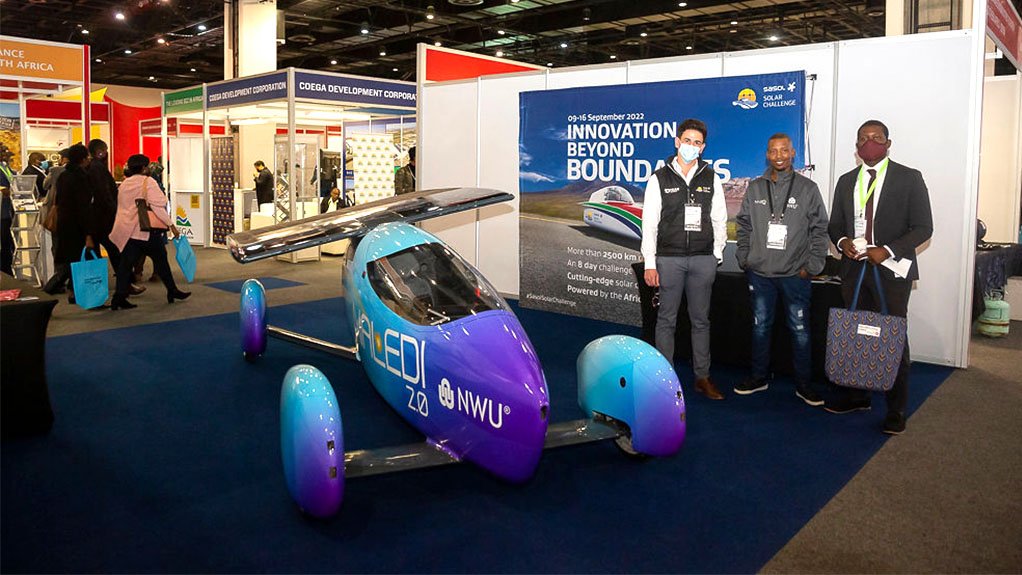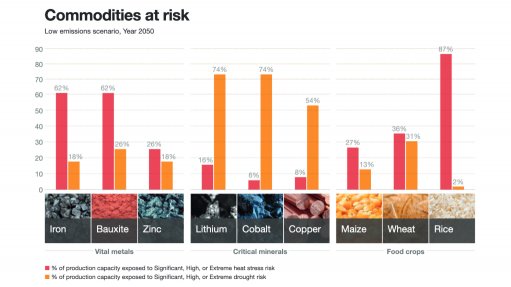The importance of African Manufacturing
This article has been supplied as a media statement and is not written by Creamer Media. It may be available only for a limited time on this website.
"Made in Africa" refers to products that are manufactured or produced within the African continent. The phrase carries significant economic, social and cultural implications and is often used to promote and support African industries and businesses. The concept of "Made in Africa" has gained traction in recent years as countries on the continent seek to strengthen their manufacturing sectors and increase domestic production.
Some of the key aspects and implications of "Made in Africa" include:
Economic Development: Emphasizing "Made in Africa" products can contribute to economic development by promoting local industries, creating jobs and stimulating economic growth. It encourages consumers to buy products produced within their own countries or regions, thereby boosting the local economy.
Diversification of Exports: Historically, many African countries have relied heavily on exporting raw materials. Encouraging "Made in Africa" products allows for the diversification of exports, as value-added goods can be shipped to international markets, potentially increasing export revenues.
Promoting African Brands: "Made in Africa" supports the development and recognition of African brands both within the continent and globally. It fosters a sense of pride and ownership over locally produced goods, helping African businesses compete with international brands.
Sustainable Development: Local manufacturing can contribute to sustainable development by reducing the carbon footprint associated with long-distance shipping and promoting environmentally friendly practices. It can also encourage responsible sourcing of raw materials.
Cultural Identity: "Made in Africa" products often incorporate local craftsmanship, traditional techniques, and cultural elements, representing the rich heritage and diversity of the continent. This can contribute to preserving and promoting African cultural identity.
Job Creation: Investing in local manufacturing and promoting "Made in Africa" products can generate employment opportunities, particularly in labour-intensive industries. Job creation can help address issues of unemployment and underemployment, especially among the youth.
Regional Integration: Emphasizing "Made in Africa" can encourage intra-African trade and regional economic integration. It promotes the development of regional value chains and strengthens economic ties among African nations.
The Manufacturing Indaba taking place on the 24 – 26 October 2023 has a strategic focus to support the “Made in Africa” initiative. The event will be hosting Country Government presentations looking at investment opportunities in their respective manufacturing focus sectors. Governments, businesses and consumers all play essential roles in supporting and promoting "Made in Africa" products. By encouraging local manufacturing and fostering a conducive environment for businesses to thrive, Africa can leverage its resources and potential to build sustainable and vibrant economies.
Comments
Press Office
Announcements
What's On
Subscribe to improve your user experience...
Option 1 (equivalent of R125 a month):
Receive a weekly copy of Creamer Media's Engineering News & Mining Weekly magazine
(print copy for those in South Africa and e-magazine for those outside of South Africa)
Receive daily email newsletters
Access to full search results
Access archive of magazine back copies
Access to Projects in Progress
Access to ONE Research Report of your choice in PDF format
Option 2 (equivalent of R375 a month):
All benefits from Option 1
PLUS
Access to Creamer Media's Research Channel Africa for ALL Research Reports, in PDF format, on various industrial and mining sectors
including Electricity; Water; Energy Transition; Hydrogen; Roads, Rail and Ports; Coal; Gold; Platinum; Battery Metals; etc.
Already a subscriber?
Forgotten your password?
Receive weekly copy of Creamer Media's Engineering News & Mining Weekly magazine (print copy for those in South Africa and e-magazine for those outside of South Africa)
➕
Recieve daily email newsletters
➕
Access to full search results
➕
Access archive of magazine back copies
➕
Access to Projects in Progress
➕
Access to ONE Research Report of your choice in PDF format
RESEARCH CHANNEL AFRICA
R4500 (equivalent of R375 a month)
SUBSCRIBEAll benefits from Option 1
➕
Access to Creamer Media's Research Channel Africa for ALL Research Reports on various industrial and mining sectors, in PDF format, including on:
Electricity
➕
Water
➕
Energy Transition
➕
Hydrogen
➕
Roads, Rail and Ports
➕
Coal
➕
Gold
➕
Platinum
➕
Battery Metals
➕
etc.
Receive all benefits from Option 1 or Option 2 delivered to numerous people at your company
➕
Multiple User names and Passwords for simultaneous log-ins
➕
Intranet integration access to all in your organisation





















